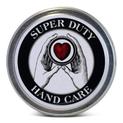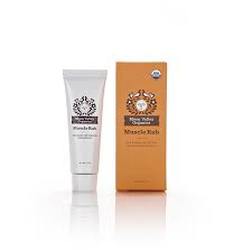- Home
- Videos
- Links
- Working with Interpreters
- Favorite Products
-
Newsletters
- December 2017
- December 2014
- June 2014
- March 2014
- December 2013
- November 2013
- October 2013 Newsletter
- July 2013 Newsletter
- June 2013 Newsletter
- March 2013
- February 2013
- January 2013
- December 2012
- November 2012
- October 2012
- September 2012
- August 2012
- July 2012
- June 2012
- May 2012
- April 2012
- March 2012
- February 2012
- January 2012
- November 2011
- October 2011
- September 2011
- August 2011
- July 2011
- March 2011
- February 2011
- January 2011
- October 2010
- September 2010
- May 2010
- April 2010
- March 2010
- September 2009
- May 2009 Remastered
- April 2009 Remastered
- February 2009 Remastered
- Healthy Body and Soul
- Upcoming Seminars
- More...
- COVID info for Medical interpreters
Healthy Body and Soul

My hands become very dry in the winter. I recently found this salve in the form of a solid lotion bar:
"Super Duty Hand Care" by Sweet Grass Farms. It comes in a metal tin. To use, remove the solid lotion entirely from its container and roll or rub between your hands.Then gently spread the softened lotion over, hands, elbows, and any area where skin is dry. Great for nurses, too. This is my new favorite product.
"Super Duty Hand Care" by Sweet Grass Farms. It comes in a metal tin. To use, remove the solid lotion entirely from its container and roll or rub between your hands.Then gently spread the softened lotion over, hands, elbows, and any area where skin is dry. Great for nurses, too. This is my new favorite product.
|
When eating on the run or if I don't have time to prepare a healthy meal after a full-day trial, It is good to know where to get dishes that are fresh and delicious. These are some of my favorite Delaware places. Vietnamese: "vPho "on Kirkwood Hwy. Newark : Great beef pho Greek/Mediterranean: "Terra" Grill on Market St. in Wilmington. Best Gyros Italian: "Mazella's" on Philadelphia Pike in Claymont. Everything is amazing Subs: "Casapulla's", of course! Mexican: "Diablo" Burritos in Trolley Square. Best fish tacos Indian: "Maharaya" at Red Mill Square. Newark. Authentic cuisine. Best chicken tikka masala Japanese: "Sushi Sumo" in Newark. Best tofu & vegetable tempura |

While in Seattle, my husband and I visited Pike's Public Market. I was feeling pain in my shoulder. We saw an attractive stand and purchased a natural muscle cream that contained arnica and cayenne pepper called "Muscle Rub." Back at the hotel, I applied the cream to my shoulders and knew right away it was the best product I had ever used. Its scent was soft and pleasant and once on, it had just the right amount of warmth. I now use it on my aching knees, too. "Muscle Rub" is made by "Moon Valley Organics, Their products are developed by artisan farmers, herbalists, and beekeepers and are manufactured using 100% USDA certified organic ingredients. Their array of products is not limited to medicinal balms; they make soaps, lotions, lip balm, and a unique hand lotion bar. Click here to visit the "Moon Valley Organics" website.
Safety Tips for Interpreters Working in
Courts, Jails, and Psychiatric Hospitals

Court and medical interpreters are lucky when it comes to safety because there is usually a bailiff, police officer, or nurse nearby. However, defendants and patients sometimes exercise sudden violent outbursts triggered by frustration, anger, mental illness, etc. and the closest person to the aggressor is the one who usually suffers. It is important to use common sense and to acknowledge your intuition when working in courts and mental hospitals. If you feel a situation is dangerous, interpret from a safer location by using your remote interpreter equipment. When standing at a podium, ask the defendant to place both his and her hands on top of the podium instead of inside the cubby. If you know that a defendant has a history of violent behavior, remain standing even though the defendant is sitting. If you must stand beside the defendant, do so but stay one or two feet behind him or her to avoid being restrained and to allow a greater range of motion on your part. Do not keep your pen on the table while taking the interpreter's oath or while accommodating chairs. By holding your pen in your hand at all times you keep the defendant from appropriating it and using it as a weapon. Make sure your purse and briefcase are out of the way so you don't trip over them; not only will falling make you vulnerable, but it will also make you look like a goofball. Do not wear regular neckties, scarves, unbreakable lanyards, or anything else wrapped around your neck so you cannot be pulled or choked with them. Instead, wear neckties and ID-holders that clip on to the clothing. Here are some recommendations for interpreting in prisons and hospitals:
There are four rules to remember:
1. Do not wear clothing that resembles the clothing that prisoners or patients wear: (will be different in each county or state)
· Scrubs
. Khaki pants
· Denim-blue, khaki, or grey chambray shirts or polo shirts
· Orange tops and/or orange bottoms, jumpsuits, or white tops and bottoms;
· Dresses that resemble prisoner muumuu (female institutions only)
2. Do not wear clothing that resembles what security staff wears:
· Pants the same color as guards
· Shirt the same color as guards
· Camouflage
3. Dress conservatively and modestly
4. Do not wear any item that will not be allowed to pass and cannot be taken off such as an underwire bra or basic layers of clothing with metal buttons.
These are SPECIFIC restrictions:
· No camouflage unless identification shows active or reserve military personnel
· No strapless, halter, bare midriff, sheer, or transparent clothing
· No skirts, dresses, or shorts that expose more than two inches above the knee
· No clothing that exposes the breast, genitalia, or buttocks area
· No tight or form-fitting attire
· No wigs, hairpieces, extensions, or other headpieces except for medical reasons and with prior approval
· No hats or gloves, except with prior approval or in inclement weather (will probably have to stay in cloak room or cubby)
· No neckties or scarves
· No shower shoes or flip-flops
Remember to call the court, prison, or hospital before your assignment for rules and recommendations.
Stay safe!
.

Memory: Ways to Keep it Strong
We need to rest and to give ourselves a break. Stress makes me forgetful. Here are some tips that have helped me remember and recall things better.
1. Get at least 8 hours of sleep every night. Close to bedtime take a warm bath, have a cup of calming herbal tea, meditate, read, or do something you know makes you sleepy. Avoid having late dinners and try to reduce caffeine intake after lunch.
2. Practice deduction and problem-solving skills, play games, do math and algebra exercises, or challenge yourself online with brain training such as "Lumosity."
3. Have fun; in the day, allow yourself time to decompress and enjoy the simple pleasures of life, free from stress. Meet with friends, practice your favorite sport, take a day-trip.
4. Eat fruits and vegetables. If you want to remove items from your diet that you think are harmful, that's great. Still, add whole grains, fruits and veggies, and healthy snacks.
5. Get things off your chest... and out of your head. Practice meditation, write an article at the end of a tough day (even if nobody will read it), keep a journal, talk to a close colleague about things that stress or aggravate you, and go to meetings where professionals in your area may be having the same problems.
6. When working, use memory techniques such as visual imaging, chunking, rhyming, acronyms, or the loci method.
7. Rest the day before a big test or assignment. Relate new material to thing you already know. Research new material in advance and pay visits to places that may intimidate you.
8. Do something creative. If you dance, sing, play a musical instrument, take pictures, make videos, program time during the month to actually do it!
9. Be kind to yourself. We all make mistakes. Mistakes teach us what we need to change.
10. Surround yourself with good people.
We need to rest and to give ourselves a break. Stress makes me forgetful. Here are some tips that have helped me remember and recall things better.
1. Get at least 8 hours of sleep every night. Close to bedtime take a warm bath, have a cup of calming herbal tea, meditate, read, or do something you know makes you sleepy. Avoid having late dinners and try to reduce caffeine intake after lunch.
2. Practice deduction and problem-solving skills, play games, do math and algebra exercises, or challenge yourself online with brain training such as "Lumosity."
3. Have fun; in the day, allow yourself time to decompress and enjoy the simple pleasures of life, free from stress. Meet with friends, practice your favorite sport, take a day-trip.
4. Eat fruits and vegetables. If you want to remove items from your diet that you think are harmful, that's great. Still, add whole grains, fruits and veggies, and healthy snacks.
5. Get things off your chest... and out of your head. Practice meditation, write an article at the end of a tough day (even if nobody will read it), keep a journal, talk to a close colleague about things that stress or aggravate you, and go to meetings where professionals in your area may be having the same problems.
6. When working, use memory techniques such as visual imaging, chunking, rhyming, acronyms, or the loci method.
7. Rest the day before a big test or assignment. Relate new material to thing you already know. Research new material in advance and pay visits to places that may intimidate you.
8. Do something creative. If you dance, sing, play a musical instrument, take pictures, make videos, program time during the month to actually do it!
9. Be kind to yourself. We all make mistakes. Mistakes teach us what we need to change.
10. Surround yourself with good people.
|
Healthy snacks are important when working long hours. If you crave something salty try olives, nuts, rice cakes, carrots, or celery with cream cheese or nut butter, sliced veggies, or baked chips. If you crave sweet try fresh fruit, smoothies, dark chocolate, whole-flour cookies, dried fruit like raisins, naturally dried coconut, whole wheat crackers with nut butter or nutella, or a bowl of hot oatmeal with cinnamon.
|
TAI CHI CHUAN

Click on the icon to visit the martial arts school website. |
tai chi
The gentle movements of Tai-Chi improve flexibility, agility, and mobility. Tai-Chi alleviates joint stiffness, back problems, and arthritis. It improves balance and helps relieve stress. Regardless of your age, Tai-Chi is a means to better health. |
PLEASE MOVE!
Conference and court interpreting demand long periods of sitting with minimal movement. |
MOVE
Sitting too long may impede proper circulation and cause blood clots. You should not sit with your legs crossed under your chair. Keep both legs in front of you. Interpreters should take a short break every 30 to 45 minutes. Use this time to relax, clear your mind, stretch, and breathe. Many tai-chi movements and yoga postures combine most of these recommended elements.
|
Your Tools are
|
.
Professional spoken-language interpreters make their living by talking. They must prepare for assignments in advance by researching and studying. Therefore their main assets are their voice and their eyes. You can carry a shawl or a scarf to wrap around your shoulders and neck in case you feel cold in an air-conditioned room. Visit an eye doctor or optometrist every year. Many interpreters are self-employed and have no health insurance, but that doesn't mean they can't have health care. An eye exam costs a private patient around $ 60 in the U.S. and opticals are always having promotions on eyeglasses. There are also things you can try anytime to help your eyes and throat, including relaxing your eyes by frequently focusing on something at a distance different than at the one you are working, practicing exercises such as those included in the Seeing Clearly Method developed by certified Feldenkrais practitioner David Weller, drinking plenty of water, using moisturizing eye drops, and avoiding first and second-hand smoke.
|






